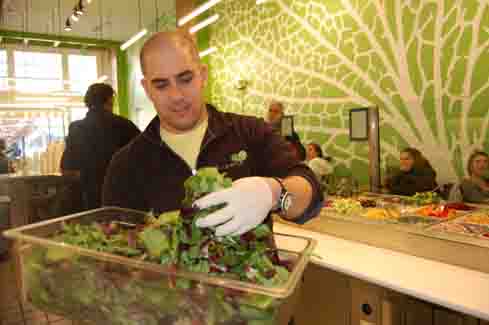Views expressed in opinion columns are the author’s own.
What are you studying to be after you graduate? A waitress at a local restaurant? A grocery store cashier? An Amazon delivery person? I doubt that anyone attending this university has dreams of working in these fields — which, to your stereotypical college student, appear undesirable and “beneath” them.
In normal circumstances, the people who fill crucial roles such as “fast-food staff, delivery people, warehouse employees, and other food-service-related workers” are viewed as unskilled, lazy or unsuccessful. However, the coronavirus has shed a light on how these “unskilled workers” fulfill the everyday services that we as consumers take for granted. And for the people who actually work in these roles, COVID-19 presents a window of opportunity to demonstrate just how poorly society treats their hard work.
Workers from McDonald’s, Burger King, Amazon, Target, Whole Foods, Instacart and other companies have recently gone on strike, protesting their low pay and almost nonexistent benefits despite being considered essential during this time of panic. Whole Foods employees voiced their disgust with the company’s suggestion to “donate” paid time off, while only being offered additional unpaid leave by the company. Instacart workers went on strike demanding $5 in hazard pay per order, as well as hand sanitizer and paid sick leave for those with preexisting conditions.
The benefits these workers are fighting for are the same benefits that are taken for granted in white-collar jobs. It’s not extravagant to ask that the essential service workers who are keeping the economy afloat throughout this crisis are ensured these benefits, now and after it subsides.
Additionally, many service industry employees across the country don’t have the luxury of staying home or stockpiling groceries, and others may not be able to access paid leave or support their children’s remote learning. They have to go to work, often without benefits packages giving them the option to protect their own health.
Even as college students who often end up working these types of jobs, we look at our time there as transient. We work these jobs in the interim of studying, and go into white-collar careers related to our fields of study when we graduate.
The metrics that define the success we’re striving for often don’t include the low-wage service jobs that are essential to keeping this country’s economy afloat. The privilege to ignore these kinds of jobs is one that is incredibly subversive, easily fostered and usually ignored in a university environment, which prioritizes internships, research and white-collar employment. This kind of entitlement isn’t as easy to recognize as white or male privilege — in part because it feels more widespread — which makes changing it even more important.
It’s easy to write off low-wage jobs. It’s easy to ignore the plight of those who risk their health for a paycheck while others stay at home. Yet, what is easy to do is not always what is the most important to do. In times like these, we need to stick together, and the best way to do that is to stand in solidarity with essential workers in the service industry.
Maya Rosenberg is a sophomore journalism and public policy major. She can be reached at maya.b.rosenberg@gmail.com.



